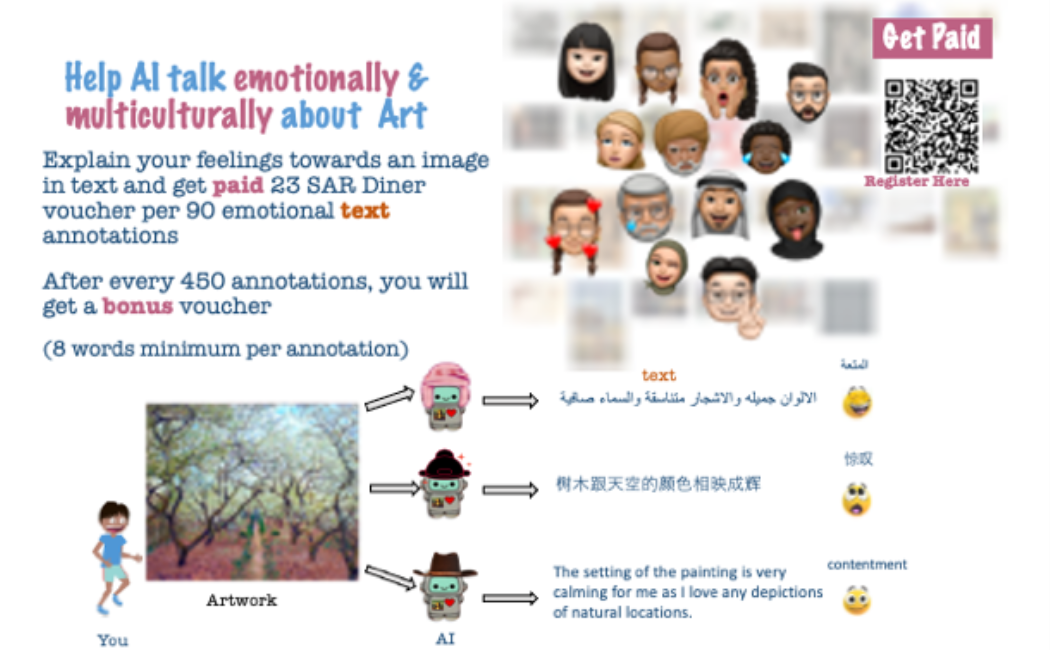


02 February, 2022
Are you interested in helping make machines emotionally intelligent so they can talk art with you and help you create some art of your own?
Described as the "Affective Language for Visual Art," ArtEmis contains over 455K emotion attributions and human explanations on 81K artworks from WikiArt. We released ArtEmis last March as part of our CVPR21 paper. ArtEmis dataset has enabled developing computer algorithms to learn how to talk effectively about artworks like Humans. However, the dataset was collected from the US, UK, New Zealand, Australia, and Canada (mainly English-speaking countries), and hence it lacks cultural diversity.
To bridge this gap and better understand the richness of our cultural differences, the KAUST Vision-CAIR group led by Prof. Mohamed Elhoseiny is now launching a multilingual version of ArtEmis in Arabic and Chinese. The project is in collaboration with Baidu Research and University of Notre Dame. Our goal with this project is to collect Arabic and Chinese emotional descriptions of artworks.
We would love to invite you, your family members, and your friends to participate in this project by writing these descriptions on artworks that you will be able to find on the MTurk platform. We will help walk you through the process during registration.
If you are interested, there are some prizes available for your efforts!